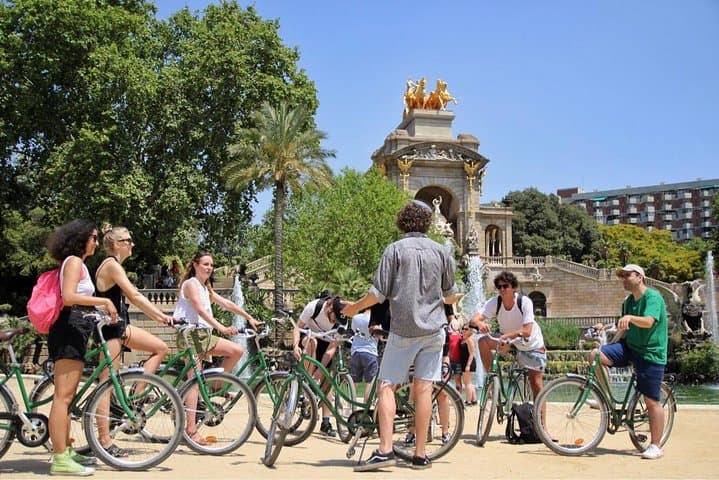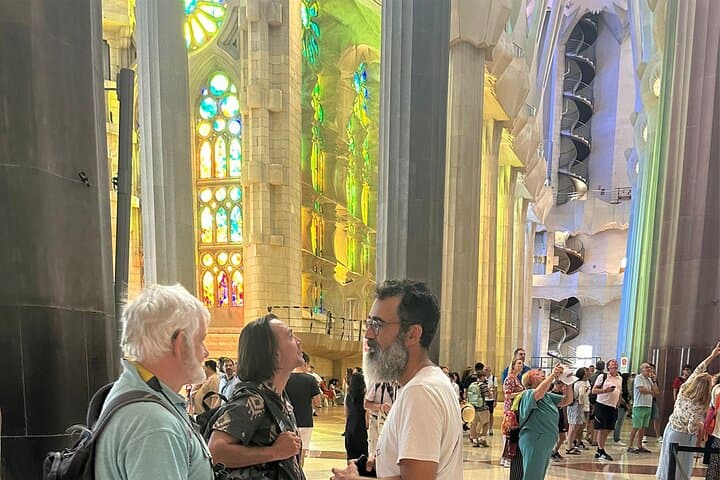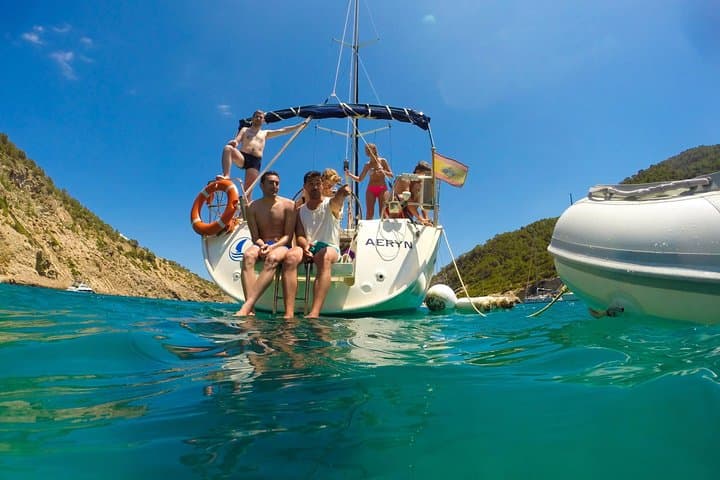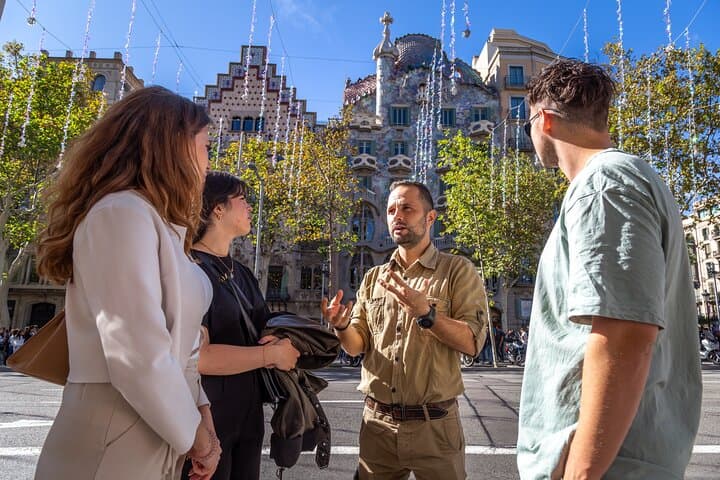Barcelona in 3 Days for Artists - Early Gaudí works and mosaiced vistas at Park Güell
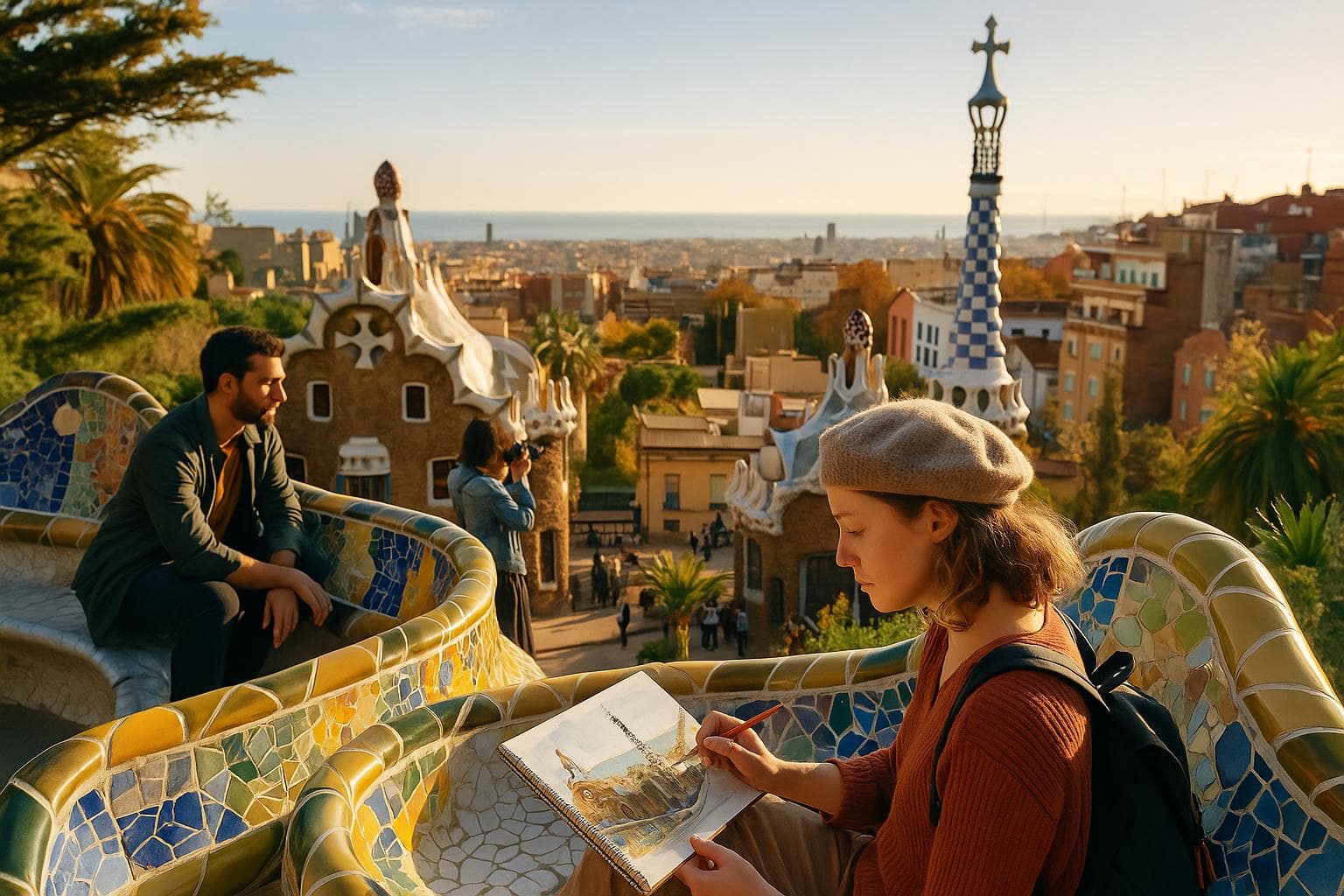
A three-day, hands-on itinerary for artists in Barcelona (November). Mix Gaudí curves, rooftop and sea-light plein air sessions, studio visits and gallery time. Focus on local studios, markets for materials, and quiet sketching vantage points tuned to shorter November days and cool Mediterranean light.
Highlights
- Early Gaudí works and mosaiced vistas at Park Güell
- Panoramic, golden-hour sketching at the Bunkers (Turó de la Rovira)
- Artist studios and production centres in Poblenou (Hangar, La Escocesa)
- Rooftop sketching and collections at MNAC and Joan Miró foundation
- Hunting for vintage art supplies at Mercat dels Encants
- Hands-on creation time at Fabra i Coats and intimate gallery visits in El Born
Itinerary
Day 1
Gràcia & Carmel: Gaudí beginnings, mosaic hills and a sunset panorama to capture the city’s cold-but-clear November light.
Casa Vicens — Gaudí’s first ceramic fantasies
Start with Casa Vicens, Gaudí’s early house: intricate ceramic detail, intimate rooms and garden corners that are ideal for close-up sketches of texture and pattern.
Tips from local experts:
- Book a timed entry and aim for the first slot to capture morning light on the façade — surfaces read best in the softer light.
- Bring a small travel easel or a sketchboard; the garden has benches for short still-life or pattern studies.
- The interior staircases and ceramic tiles are narrow — use a thin soft pencil (2B–4B) for quick texture studies; wheelchair access is limited in some historic corners.
Brunch in Gràcia — La Pubilla for Catalan flavours
A local Gràcia bistro with seasonal Catalan dishes — a relaxed meal to set up sketchbooks and warm up for the day.
Tips from local experts:
- Ask for a table by the window to sketch the narrow Gràcia street life while you eat.
- November mornings can be crisp; request a small pot of hot water for tea refills to warm hands between sketch sessions.
- Pick up a napkin or paper placemat with printed patterns — they make great quick reference textures for later studies.
Park Güell — Monumental core & free park for plein-air sketching
Spend time sketching Gaudí’s mosaics, undulating benches and the city-framed views. Split time between the paid Monumental Core and the more open free terraces for varied compositions.
Tips from local experts:
- Buy tickets in advance for the Monumental Core to avoid lines; plan to sketch the bench curves on the southern terrace where afternoon light softens the tiles.
- November light is lower — bring a small clamp-on daylight lamp or use high-contrast pencils; benches have limited seating so a folding stool helps.
- Use the free areas north of the core for skyline studies without the crowds; there are sheltered corners if the Mediterranean breeze picks up.
Fundació Antoni Tàpies — Texture, material and Catalan modernity
A compact modern art museum with tactile works and a rooftop that gives quieter city views — perfect for studying materiality and mixed-media inspiration.
Tips from local experts:
- Focus on Tàpies’ surfaces for collage and mixed-media ideas; photograph (if allowed) small details for studio references later.
- Check current rotating exhibitions and request the audio guide on materials to inform your own material experiments.
- The museum is wheelchair accessible; the rooftop terrace is a calm spot for quick compositional thumbnails if weather permits.
Bunkers del Carmel (Turó de la Rovira) — panoramic golden-hour plein air
An open-air vantage point with sweeping 360º views — a favorite among locals for sunset studies of the city and the sea light reflecting off rooftops.
Tips from local experts:
- Arrive ~45 minutes before sunset to sketch thumbnails and pick a sheltered spot — November sunsets come early, so check local sunset time.
- Wear layers and bring a windproof jacket; the hill is exposed and the temperature drops quickly in late autumn.
- For large compositions, use the eastern edge for view of the sea or the western edge for cathedral/built-form studies; benches and low walls are good natural easels.
Dinner — La Pepita (creative tapas to share)
A relaxed dinner with inventive small plates — a chance to review sketches, swap ideas with travel companions and recharge.
Tips from local experts:
- Order a selection of small plates to taste local textures and colors that can inspire palette choices.
- Sit near the bar if you want a lively, local atmosphere and quick service — quieter tables are better if you want to spread out sketchbooks.
- If you plan to keep working after dinner, ask for warm lighting and a corner table; many staff are used to artists lingering with notebooks.
Day 2
Montjuïc, Poblenou studios and the seafront: museum rooftops, modern-production studios and an evening by the sea for low, crisp November light.
MNAC (Museu Nacional d'Art de Catalunya) — rooftop views and collection sketches
Start at MNAC: study classical and modern Catalan works and sketch from the rooftop terrace overlooking Plaça d'Espanya and the city skyline.
Tips from local experts:
- The southern rooftop terrace gives softer morning-to-noon light — ideal for warming up with quick skyline studies.
- Check which galleries have large canvases on display to study brushwork at arm’s length; use a telephoto on your phone for texture study in case close photography is restricted.
- There are stairs to reach certain terraces; if you need elevator access, ask the information desk for the accessible route.
Fundació Joan Miró — color, form and a quiet studio atmosphere
Joan Miró’s museum on Montjuïc offers modern works and a serene garden; absorb Miró’s use of negative space and experiment with symbolic mark-making.
Tips from local experts:
- Study Miró’s color fields and bring a small gouache set to try his limited palettes on paper in the museum’s garden.
- The museum’s light is softer in November; plan sketches in the indoor galleries first, then step outside when the sun warms the stone.
- Ask at the desk about educational materials or short guided notes focused on Miró’s materials — they often provide insights helpful for studio experiments.
Lunch — Quimet & Quimet (iconic local tapas bar)
A compact, flavour-forward tapas spot in Poble-sec — perfect for a light, fast meal before studio visits.
Tips from local experts:
- This place fills quickly — aim to arrive early for a spare table and bring a notebook for quick visual notes of compositions.
- Sit at the counter to watch plating and pick up ideas for food-as-still-life sketches.
- Keep your materials minimal during lunch (one sketchbook, pen) — the kitchen is tiny and space limited.
Hangar (centre de producció d'art) — studio visits and artist production
A working production centre where artists run projects; aim for an open-studio visit or scheduled appointment to meet local practitioners.
Tips from local experts:
- Contact ahead to request a short studio visit or talk with a resident artist — many studios welcome short, focused visits for other artists.
- Wear flat shoes and clothes that can get dusty if you’ll step into working studios; Hangar often hosts experimental media that can inspire mixed-media work.
- Bring business cards or small prints of your work; resident artists appreciate tangible samples for future collaboration.
La Escocesa — industrial-arts factory & artist residencies in Poblenou
A converted factory hosting studios and residencies — great for seeing hands-on processes and discovering local makers.
Tips from local experts:
- La Escocesa often requires appointment for studio tours — email ahead to coordinate and see specific workshops (ceramics, print, etc.).
- Explore the outer yard and light-filled factory windows for compositional studies of industrial textures against sea light.
- If you hope to use shared tools or glazes later, ask artists where they source materials locally (they’ll often point you to the best small suppliers).
Mercat dels Encants (Fira de Bellcaire) — vintage & materials market
An energetic flea market for finding vintage frames, papers, brushes, metal bits and unexpected collage materials — a treasure trove for mixed-media artists.
Tips from local experts:
- Browse early stalls for best picks; November crowds thin in late afternoon but quality finds go fast.
- Bring several reusable bags and small bills; many sellers prefer cash and are open to small haggles on volume buys.
- Look for old technical drawing tools, wooden frames and vintage paper — sellers sometimes keep hidden piles if you ask to look behind boxes.
Dinner — Els Pescadors (Poblenou seafood — local and welcoming)
A traditional seafood restaurant beloved by locals — wind down and review the day’s sketches with a taste of Mediterranean fish and shellfish.
Tips from local experts:
- Reserve a table in advance — nights can fill, even in November; ask for a quiet corner if you’ll spread out sketchbooks.
- Order a few small plates to study the glossy textures of cooked fish and the matte of rustic bread for still-life reference.
- Keep a small damp cloth in your bag if you plan to do quick gestures with ink or ink washes while dining.
Day 3
El Born & Gothic stitching: parks and plazas for intimate studies, hands-on workshop time, and gallery browsing in the shorter autumn light.
Parc de la Ciutadella — morning light, trees and water reflections
A leafy park with sculptures, fountains and intimate light — a relaxed plein-air session focusing on water reflections and small architectural fragments.
Tips from local experts:
- Morning in November gives crisp, indirect light through the trees — try ink washes for reflections on the pond.
- Use sheltered benches near the fountain; damp mornings mean a waterproof sketchbook cover helps preserve pages.
- Look for local artists who often work here — a polite exchange can lead to sketching company or tips on local pigments and shops.
El Born Centre de Cultura i Memòria — layered urban history and artisan lanes
Explore the archaeological exhibits and the surrounding Born neighbourhood — quiet courtyards and artisan shops provide intimate study subjects.
Tips from local experts:
- Sketch the iron structure inside the market hall and the archaeological layers for ideas on layering and texture in your own work.
- Stroll the surrounding narrow streets — look for small ateliers and leatherworkers tucked down side alleys for materials and commissions.
- The centre can be chilly; plan short outdoor studies and return inside to compare notes and warm up with a coffee.
Lunch — Bar del Pla (El Born tapas with a local rhythm)
A friendly El Born tapas spot — good for light sharing plates and sketchbook review between sessions.
Tips from local experts:
- Ask for a table with a view of a narrow street — ideal for continuous gesture sketches of passersby.
- Order small plates with varied textures (soft cheeses, charred vegetables, anchovies) to practice tonal sketches.
- Keep your materials minimal to avoid crowding the table — one sketchbook, a pen and a small colour swatch pack is ideal.
Fabra i Coats - Fàbrica de Creació — hands-on workshop or open studio session
A former textile factory now a large creation centre; join a scheduled workshop or arrange a short studio session with visiting artists (book ahead).
Tips from local experts:
- Reserve a workshop slot in advance — many programs run seasonally and November may have studios preparing winter residencies.
- Bring apron and closed shoes if you’ll use shared materials (print, wood, ceramic areas are active here).
- Ask staff about upcoming open studio nights — they’re excellent for networking and finding artists selling small works or materials.
Galeria SENDA — contemporary gallery browsing and artist discovery
A well-regarded contemporary gallery where you can see current local and international artists; a quieter alternative to larger tourist museums.
Tips from local experts:
- Spend time with one piece — gallery lighting in November is lower; study how the works respond to soft ambient light rather than bright sun.
- Ask the gallery staff about local emerging artists — they can point you to smaller studios or upcoming shows in the neighbourhood.
- Bring a small notebook to record names, materials and scale references; galleries are generous with artist biographies and press kits.
Antic Teatre — late-afternoon creative hangout or small performance
Finish with the creative atmosphere of Antic Teatre: often hosts small performances, exhibitions and a relaxed courtyard bar — a good spot to look for artist events or quiet reflection.
Tips from local experts:
- Check the day’s programme in the morning — Antic Teatre sometimes hosts intimate performances and artist-led events in the early evening.
- The courtyard is sheltered but gets chilly in November — bring a light wrap if you’ll sketch outdoors during a performance.
- Use the bar area to compare sketchbooks with other visiting artists — it’s a known meeting place for the local creative community.
Itinerary Attributes
| Days | 3 |
| Highlights | 6 |
| Season | - |
| Month | - |
| Persona | Artists |
| Transfers | - |
| Restaurants | 5 |
| Total Activities | 19 |
| Total Places | 19 |
| Activities Types | Culture, Restaurant, Outdoor, Meal, Shopping, Experience, Nightlife |
